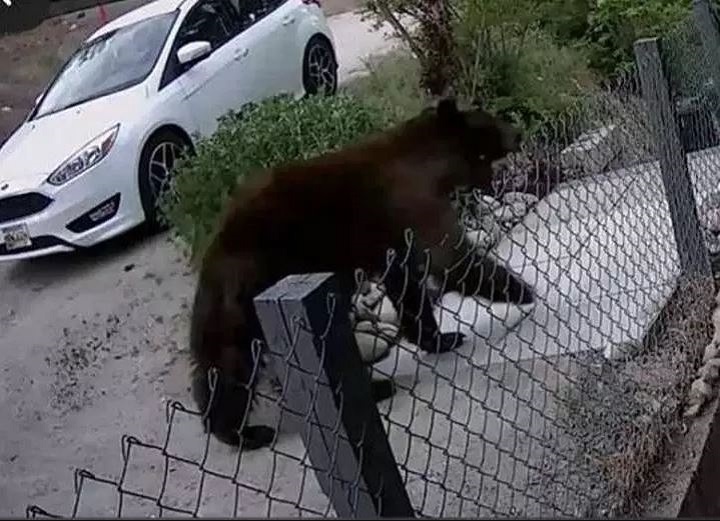A string of recent bear sightings in Peachland has prompted a warning from WildSafeBC.

“Spring bear activity in Okanagan Westside communities is increasing,” WildSafeBC Okanagan Westside said on its Facebook page.
“Currently, there is known bear activity in Peachland (several areas between Hardy St. and Desert Pines Ave.), and in the Rose Valley (Scott Cres.) and Glenrosa (Webber Rd., Windt Rd.) neighbourhoods of West Kelowna.”
The main attractant for bears is garbage, said WildSafeBC, which was “identified in 71 per cent of black bear reports from this region made to the Conservation Officer Service year (Nov. 20, 2017 to Nov. 19, 2018).
WATCH BELOW (Aired May 9, 2019): Habituated black bear put down by officers in Canmore

“As such, WildSafeBC would like to remind residents to please keep their garbage secured in a shed, garage or indoors until the morning of collection day.”
According to WildSafeBC, calls to the Conservation Officer reporting line regarding bear conflicts and bear sightings can number anywhere from 14,000 to 25,000 calls in a year.

Get breaking National news
To report an urban bear sighting, call the Conservation Officer Service at 1-877-952-7277.
WATCH BELOW (Aired March 28, 2019): Father and son poachers caught killing mother bear and cubs in Alaska

Below are some tips from WildSafeBC regarding bears and bear safety.
- Adult males measure between 60-90 cm at shoulder height and weigh anywhere from 80-300 kilograms.
- While called a black bear, these animals come in a variety of colours — everything from the white Kermode bear to their namesake black and most shades of brown in between.
- Bears have eyesight and hearing as good as or better than that of humans.
- Black bears can live to be over 30 years of age in the wild, but more commonly live to be about 15 to 20 years of age.
- Black bears are extremely fast and can run equally as well uphill or down.
- Bears inhabit most ecosystems throughout BC and you should consider the entire province to be “bear country”.
- Store garbage in a secure building until collection day or consider purchasing a bear-resistant household container.
- Ensure bins are tightly closed.
- Feed pets indoors.
- If pets are fed outside, ensure all food is cleaned up.
- Store pet food in a secure location or in a bear-resistant bin.
- Pick fruit and allow it to ripen indoors or pick daily as it ripens. Do not allow windfall to accumulate on the ground.
- Use bird feeders only in the winter when bears are hibernating and natural bird food is limited.
More information on black bears and attractant management can be found here.


Comments